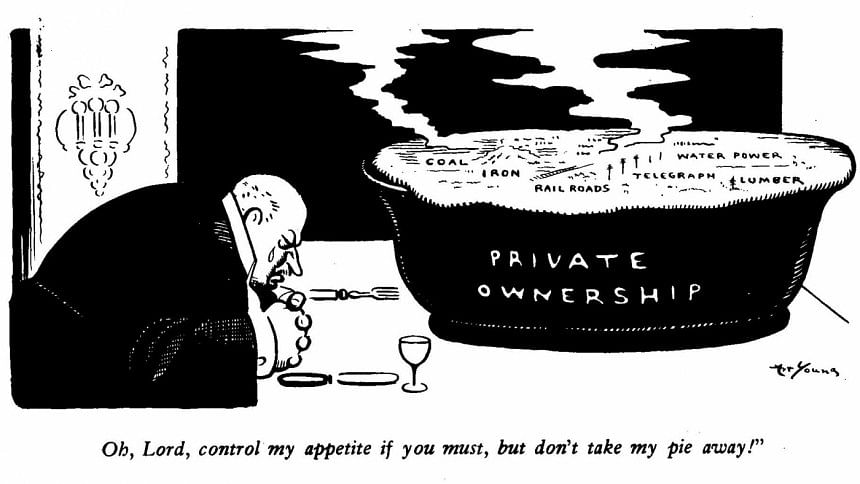Feel the Bern

ALL bets are off - by winning New Hampshire's 2016 Democratic presidential primary, Bernie Sanders has done what was once unthinkable, dealing an astonishing blow to the Clinton juggernaut and underscoring the growing disillusionment of the party base with the establishment.
It's no mean feat in a country where accusations of "socialism" has trailed liberals for decades, from Regan's attacks on Medicare to the Republicans' malicious campaign against Obamacare. But now a candidate, the 74-year-old democratic socialist from Vermont, whose vision of the US economy does in fact look a lot like socialism - strong unions, secure employment, affordable college - signals a wind of change and is finding favour with a large number of Democrats drawing inspiration from the gentle social democracies across the Atlantic.
If George W Bush's misrule tilted the Democratic Party to the Left, Barack Obama's inability to address inequality and injustice has pushed it even further. If Bush was responsible for the liberal framework that helped elect Obama, Obama inadvertently contributed to the birth of two movements - Occupy and Black Lives Matter - dedicated to the proposition that even his brand of the liberalism is not progressive enough - and the meteoric rise of someone like Sanders. It means that on domestic policy - how the US foreign policy works is anyone's guess - the terms of the national debate will continue turning Left. Not surprisingly, Hillary Clinton appears more Left-leaning, a stark departure from the past quarter century of her party's economic policymaking.
With the fall of the Berlin Wall and the collapse of the Soviet Union, the word "socialism" may have landed in the dustbin of history but may still be available for 'recycling'. And the newfound eagerness to embrace the idea reflects the climate that a Gallup poll captured in 2015, when 47 percent Americans said they would consider voting for a socialist candidate.
It shouldn't come as a surprise. Many Americans have forgotten that US politics after the Second World War was founded on the central theme of the earlier Progressive movement - championed by FDR and his cousin Theodore - that the ideals of liberty, economic opportunity, and equality could not survive in a laissez-faire industrial economy.
While socialism had, for the most part, good connotations in most countries for much of the twentieth century, in the US, for decades, the word served primarily as a stick with which conservative Republicans beat liberal Democrats about the head. When Barry Goldwater and Ronald Reagan accused John F Kennedy and Lyndon Johnson of "being socialists" for advocating guaranteed health care for all, the implication was that Medicare and Medicaid would presage a Soviet America. Senator Obama met the same fate in 2008 when the polls were nip and tuck and the leaves had not yet begun to turn. "With all due respect," Senator George Voinovich from Ohio said, "the man is a socialist." It sounded like Voinovich was accusing Obama of eating human flesh.
What exactly does a "socialist" stand for? Back in November last year, speaking on his political philosophy at Georgetown University, Sanders gave his answer. "Let me define for you, simply and straightforwardly, what democratic socialism means to me. It builds on what Franklin Delano Roosevelt said when he fought for guaranteed economic rights for all Americans: minimum wages, retirement benefits, banking regulation, the forty-hour workweek."
That is the lost world which Sanders's "socialism" points back to. John Stuart Mill predicted that capitalism would burn out its fuel of cupidity and eventually become what socialists really wanted. Worker-owned cooperatives would out-compete traditional enterprises by aligning workers' personal goals with those of organisations, something that is actually happening across the US.
His is hardly a programme for a utopian economy. His ideas are based on cooperation and deepened democracy - what socialism used to stand for. The heart of Sanders's programme is economic security without which "true freedom does not occur". He also sees a strong government as protecting individualism from an economy where a tiny minority lives in miraculous luxury while many others cannot afford decent healthcare or sending a kid to college.
Calling this once-mainstream idea "socialism" is an indication of how far the world has moved away from it and if we can ever get back to it.
I guess finding that out would require the analytical skills of Karl the Marxist.
The writer is a member of the editorial team at The Daily Star.

 For all latest news, follow The Daily Star's Google News channel.
For all latest news, follow The Daily Star's Google News channel. 



Comments